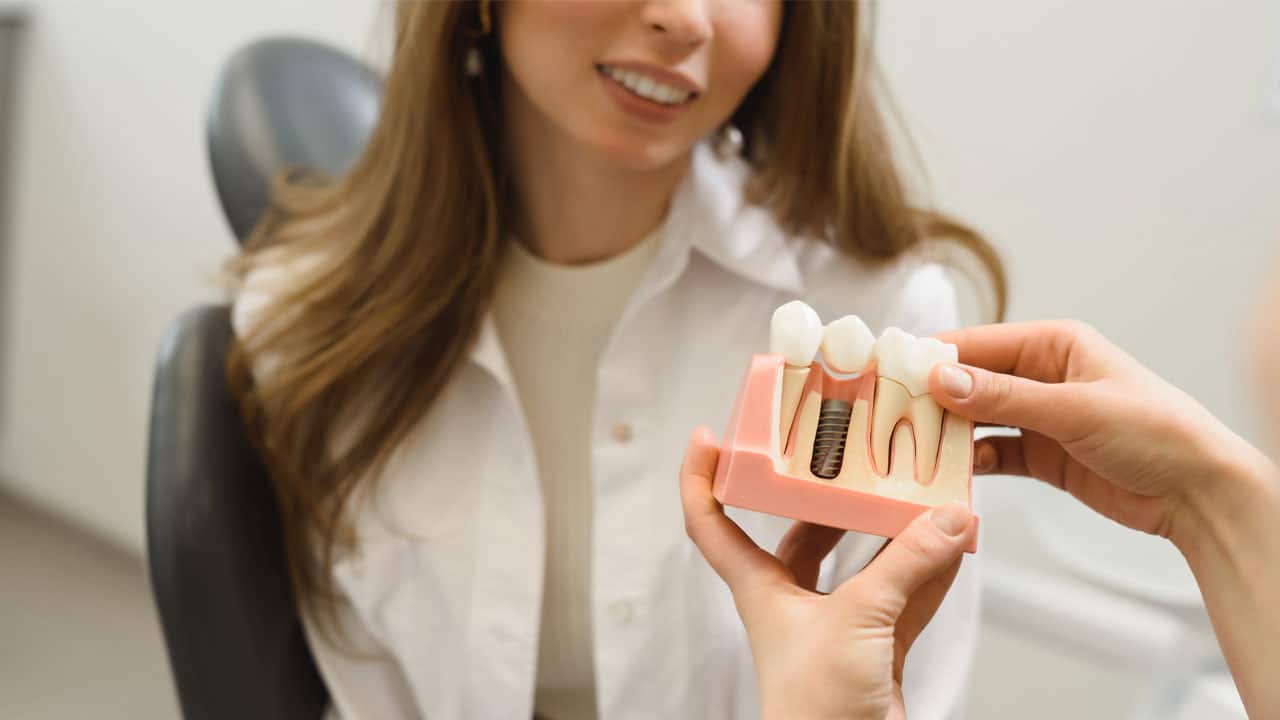
Full-Mouth Dental Implant
If you have lost one or multiple teeth due to injury, severe oral infection, or extreme case of tooth decay, full-mouth dental implants are a perfect option to effectively restore your beautiful smile and allow you to eat the foods you love. These implants are made up of two arches that can replace all of your missing teeth at once.
1. Indications and contraindications to full-mouth dental implants
Anyone with missing teeth should consider getting implants. If you have severe untreatable decay, you should also think about replacing the affected teeth with implants before they completely rot away. However, you should be in sufficient health to undergo everything involved in an implant procedure.
If you’re diagnosed with cancer, immune system or bone disorders, or severe rheumatic fever, it is strongly advised that you avoid having full-mouth dental implants placed. Additionally, it is not permitted to install implants if one is undergoing radiation treatment for their head or neck, has recently experienced a myocardial infarction, is on immunosuppressant medications, or is using bisphosphonates.
Before receiving full-mouth dental implants, those with pregnancy, diabetes, high blood pressure, or artificial prosthetics should also speak with their doctor.
2. Types of full-arch dental implants
There are several types of full-arch dental implants, including:
- Removable implants. Four or more implants support the whole arch, keeping the denture secure. Such implants are quite simple to clean and replace if they break.
- Semi-removable implants. This approach is suitable for those with bone deterioration and involves six to eight more implants that make up the arch. These dental implants are simple to maintain and feel much like real teeth.
- Non-removable implants. In this approach, an implant and a crown are used to replace every tooth. If possible, a dentist may think about incorporating bridges. However, this technique needs enough bone to sustain it.
3. Pros and cons of full mouth implants
Full-mouth dental implants provide a number of benefits over conventional dentures, including the following:
- You should not be concerned that they will come out like a denture because they feel and appear natural.
- You are free to eat whatever you want.
- They preserve the contours of your lower face.
- Such implants are durable and might last a lifetime.
- They are practical and don’t require adhesives.
Full-mouth dental implants have fewer drawbacks than partial-mouth implants. However, you should still be aware of those existing, such as:
- The lengthy healing process, during which one must refrain from chewing actively or consuming solid foods.
- It is a necessity to take antibiotics both before and after the implantation to eliminate possible infections.
4. The implant surgery process
In order to see the entire jaw, a dental implant expert checks the patient’s mouth and takes X-rays and CT scans. After building a 3D model of the future implants, the doctor decides where to place them. The primary part of the surgery begins with the development of a stent or specifically made template to identify the optimum placement of dental implants. The implants must now be put and coated with healing caps in order for them to osseointegrate with the jawbone. The doctor will next either install temporary or permanent teeth. Temporary teeth are worn for 4-6 months while the implants recover. Permanent teeth then replace them.
5. Recovery period
You may have some discomfort and pain following surgery. If this occurs, your doctor would recommend some painkillers. Antibiotics and an antiseptic mouthwash are also required as the whole mouth was treated during the surgery. Smoking and exercise are not permitted for many days following the surgery. You will also be required to follow a diet that forbids hot and substantial meals. The healing process can be aided by good dental hygiene practices.
6. Cost
Full-mouth dental implant placement costs vary depending on a variety of factors, including the location, the number of implants, their type, the dentist’s skill, the number of tests, and the condition of your jawbone. Full-mouth dental implants typically cost between $12,000 and $25,000 for each jaw.
